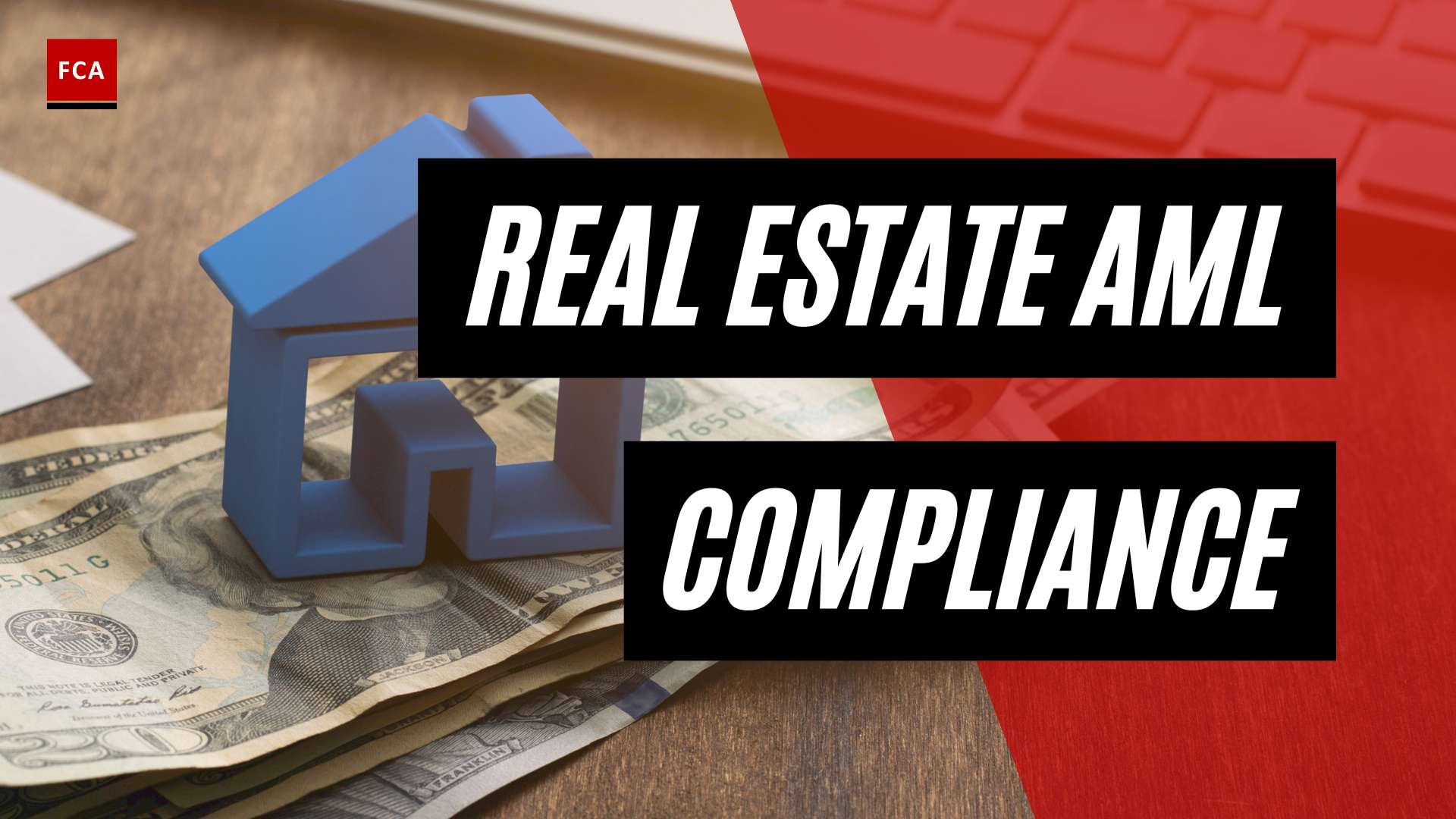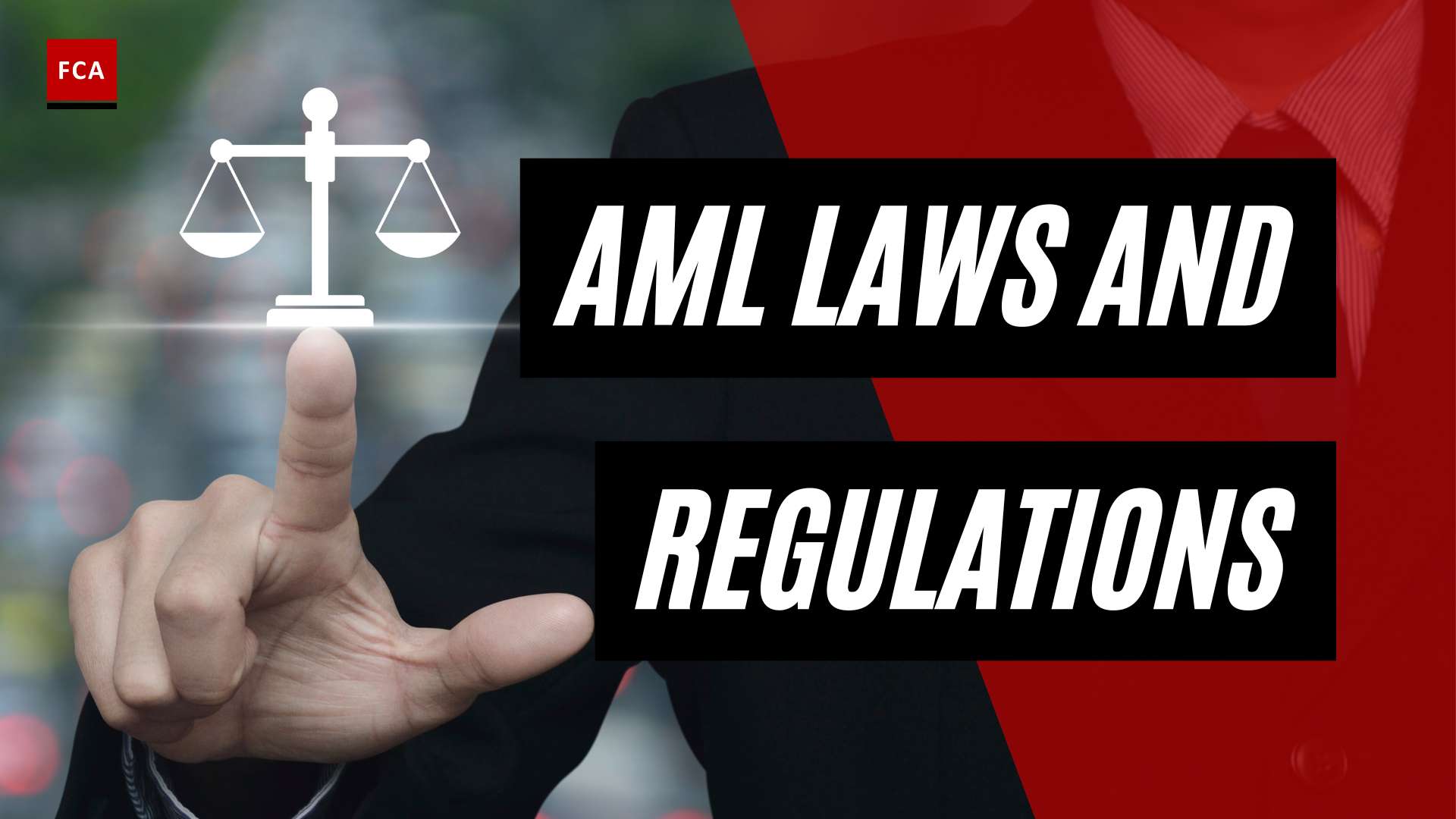Understanding AML Regulations for Auction Houses
Auction houses play a significant role in the art and luxury goods industry, facilitating the sale of valuable items to collectors and enthusiasts. To ensure transparency and combat money laundering and other financial crimes, auction houses are subject to Anti-Money Laundering (AML) regulations. This section provides an overview of AML regulations for auction houses and highlights the importance of compliance.
Overview of AML Regulations for Auction Houses
In the United States, auction houses are required to comply with AML regulations enforced by the U.S. Department of the Treasury’s Financial Crimes Enforcement Network (FinCEN) (Shufti Pro). According to FinCEN, auction houses that conduct auctions totaling over $100,000 in a calendar year are designated as financial institutions under the Bank Secrecy Act (BSA). As financial institutions, auction houses must establish and maintain AML programs to detect and prevent money laundering and other illicit activities.
AML regulations for auction houses in the art and luxury goods sector include several key requirements. These requirements include implementing AML programs, designating a compliance officer, conducting customer due diligence, filing Suspicious Activity Reports (SARs), and adhering to record-keeping requirements. By fulfilling these obligations, auction houses contribute to the overall integrity of the financial system and help protect against money laundering and terrorist financing.
Importance of Compliance for Auction Houses
Compliance with AML regulations is of utmost importance for auction houses operating in the art and luxury goods industry. Failure to comply with these regulations can lead to legal consequences, financial penalties, and reputational damage (Shufti Pro). Auction houses may face civil and criminal penalties for non-compliance, including fines and imprisonment. Moreover, reputational damage resulting from non-compliance can significantly impact an auction house’s standing within the industry, potentially leading to loss of clientele and business opportunities.
By adhering to AML regulations, auction houses demonstrate their commitment to transparency, integrity, and ethical business practices. Compliance helps protect the art market from being exploited for illicit purposes, such as money laundering or terrorist financing. Additionally, it fosters trust among buyers, sellers, and other stakeholders, ensuring that transactions are conducted in a fair and legitimate manner.
To effectively comply with AML regulations, auction houses should stay up-to-date with evolving requirements, implement robust AML programs, and utilize technology solutions that aid in identity verification and transaction monitoring (Shufti Pro). These measures enable auction houses to proactively identify and mitigate potential risks associated with money laundering and financial crimes.
In conclusion, understanding and adhering to AML regulations is essential for auction houses operating in the art and luxury goods industry. Compliance not only helps prevent illicit activities but also upholds the integrity of the financial system and fosters trust among stakeholders. By fulfilling their obligations, auction houses contribute to a transparent and secure marketplace for art and luxury goods.
Key Requirements of AML Regulations for Auction Houses
To ensure compliance with Anti-Money Laundering (AML) regulations, auction houses in the art and antiquities sector must adhere to several key requirements. These requirements aim to mitigate the risk of money laundering and illicit activities within the industry. The key requirements include:
Implementing AML Programs
Auction houses are obligated to implement comprehensive AML programs. These programs should include internal policies, procedures, and controls designed to prevent money laundering and the financing of terrorism. The AML programs should be tailored to the specific risks faced by auction houses in the art market. By implementing robust AML programs, auction houses can effectively identify and mitigate potential risks.
Designating a Compliance Officer
It is essential for auction houses to designate a compliance officer responsible for overseeing and ensuring compliance with AML regulations. The compliance officer plays a critical role in developing and implementing the AML program, conducting risk assessments, and providing ongoing training to employees. Their primary responsibility is to ensure that the auction house operates in accordance with applicable AML laws and regulations.
Conducting Customer Due Diligence
Auction houses must conduct thorough customer due diligence (CDD) procedures to verify the identity of their clients. This includes obtaining and verifying information such as the client’s name, address, and identification documents. By conducting CDD, auction houses can assess the potential risks associated with their clients and identify any suspicious activities that may require further investigation.
Filing Suspicious Activity Reports (SARs)
If auction houses encounter any transactions or activities that raise suspicion of money laundering or other illicit activities, they are required to file Suspicious Activity Reports (SARs) with the appropriate authorities. SARs provide a mechanism for reporting and sharing information about suspicious transactions, enabling law enforcement agencies to investigate and take necessary actions.
Adhering to Record-Keeping Requirements
Auction houses must maintain detailed records of their transactions and customer information. These records should include information about the buyers, sellers, and the artworks or items involved in the transactions. By adhering to record-keeping requirements, auction houses can provide transparency and accountability, facilitating investigations if necessary.
While these key requirements form the foundation of AML compliance for auction houses, it’s important to note that the specific obligations may vary depending on the jurisdiction and local regulations. To stay up to date with the latest AML requirements and guidelines, auction houses can refer to resources such as the Financial Crimes Enforcement Network (FinCEN), the Financial Action Task Force (FATF), and the FINRA Gateway for Member Firms.
By fulfilling these key requirements, auction houses can contribute to the overall integrity of the art market, protect themselves from legal and reputational risks, and demonstrate their commitment to preventing money laundering and illicit activities in the industry.
Consequences of Non-Compliance with AML Regulations
Ensuring compliance with Anti-Money Laundering (AML) regulations is of utmost importance for auction houses. Failure to comply with these regulations can have serious consequences, both legally and in terms of reputation.
Legal Consequences and Financial Penalties
Non-compliance with AML regulations can result in significant legal consequences and financial penalties for auction houses. These penalties can vary depending on the jurisdiction and the severity of the violation.
In the art sector, the consequences of non-compliance can lead to reputational damage, financial penalties, loss of license to operate, and even criminal charges for those involved in money laundering activities (Shufti Pro). The European Union has implemented directives, such as the 6th Anti-Money Laundering Directive (6AMLD) and the 5th Anti-Money Laundering Directive (5AMLD), to strengthen AML provisions and introduce stricter penalties for non-compliance. These penalties may include minimum prison sentences and bans on accessing public funding opportunities (IDENFY).
To avoid legal consequences and financial penalties, auction houses must establish robust AML programs, designate compliance officers, conduct customer due diligence, file suspicious activity reports (SARs), and adhere to record-keeping requirements. By implementing these measures, auction houses can demonstrate their commitment to combatting money laundering and protecting the integrity of the art market.
Reputational Damage
In addition to legal consequences, non-compliance with AML regulations can have severe reputational damage for auction houses. The art market relies heavily on trust and confidence, and any association with money laundering activities can significantly tarnish an auction house’s reputation.
Reputational damage can result in a loss of trust from clients, collectors, and other stakeholders. This loss of trust can impact the auction house’s ability to attract consignments, secure high-value sales, and maintain long-term relationships with clients. It can take years to rebuild a damaged reputation, making it crucial for auction houses to prioritize AML compliance and uphold the highest ethical standards.
By implementing robust AML programs, conducting thorough customer due diligence, and promptly reporting any suspicious activities, auction houses can demonstrate their commitment to maintaining a transparent and compliant business environment. This proactive approach not only helps to mitigate the risk of reputational damage but also reinforces trust and confidence among stakeholders.
Compliance with AML regulations is not only a legal requirement but also a fundamental aspect of responsible business practices for auction houses. By understanding and adhering to these regulations, auction houses can protect themselves from legal consequences, financial penalties, and reputational damage, while contributing to the integrity and transparency of the art market.
AML Regulations for Auction Houses in the Art Market
When it comes to anti-money laundering (AML) regulations, the art market has not been overlooked. Recognizing the vulnerability of the art market to money laundering and terrorist financing, the Financial Action Task Force (FATF) amended its Recommendations in 2012 to include auction houses within the scope of AML regulations. This recognition by the FATF emphasizes the need for auction houses to implement robust AML measures to protect against illicit financial activities (Shufti Pro).
Recognition of Vulnerabilities by Financial Action Task Force (FATF)
The FATF’s acknowledgment of the art market’s susceptibility to money laundering and terrorist financing has brought increased attention to the importance of AML compliance in auction houses. The subjective nature of art, coupled with the anonymity it can provide, creates an attractive environment for criminals seeking to launder money. By including auction houses within the purview of AML regulations, the FATF aims to enhance transparency and combat illicit financial activities within the art market (IDENFY).
Role of Auction Houses in Preventing Money Laundering
Auction houses play a pivotal role in preventing money laundering within the art market. As intermediaries in art transactions, they have the opportunity to identify suspicious activities and report them to the relevant authorities. By implementing robust AML programs, auction houses can contribute to the overall efforts in combating illegal financial activities. This includes conducting enhanced due diligence on all transactions, monitoring sales and purchases, and identifying beneficial owners. By actively participating in AML compliance, auction houses can help maintain the integrity of the art market.
Importance of Technology Solutions for AML Compliance
To effectively comply with AML regulations, auction houses can leverage technology solutions, such as AI-based AML compliance tools. These tools automate key processes like identity verification, transaction monitoring, and sanctions screening, making the AML compliance process more efficient and effective. By utilizing technology, auction houses can enhance their ability to detect and prevent money laundering activities within the art market. The integration of technology solutions ensures a streamlined and comprehensive approach to AML compliance, ultimately safeguarding the integrity of the art market (Shufti Pro).
By recognizing the vulnerabilities in the art market, the role of auction houses in preventing money laundering, and the importance of technology solutions for AML compliance, auction houses can navigate the complex landscape of AML regulations effectively. It is crucial for auction houses to stay updated with the evolving AML requirements and implement robust AML programs to ensure the integrity of their operations and contribute to the broader efforts in combating money laundering within the art market.
AML Regulations for Auction Houses in Real Estate Transactions
Auction houses, known for their involvement in art transactions, may also find themselves subject to anti-money laundering (AML) regulations in the realm of real estate transactions. The inclusion of auction houses as “dealers in art” within AML regulations broadens their scope of compliance obligations.
Inclusion of Auction Houses as “Dealers in Art” in AML Regulations
Under the anti-money laundering regulations, auction houses may fall under the definition of “real estate” and be required to comply with the related AML requirements. The Financial Crimes Enforcement Network (FinCEN) has expanded the definition of “real estate” to include dealers in art and antiquities. As a result, auction houses engaged in art transactions may be subject to these regulations. This expansion aims to address vulnerabilities and close potential loopholes that could be exploited for criminal activities, such as money laundering through real estate transactions (Federal Register).
Obligations for Auction Houses in Real Estate Transactions
The anti-money laundering regulations for real estate transactions impose certain obligations on businesses engaged in real estate closings, settlements, and potentially auction houses involved in these activities. Auction houses may be required to implement anti-money laundering programs, conduct customer due diligence, and file reports of certain transactions to FinCEN. By adhering to these obligations, auction houses can contribute to the prevention and detection of money laundering and other illicit activities in the real estate sector.
It is important for auction houses to be aware of their potential obligations and take proactive steps to ensure compliance with AML regulations in real estate transactions. This may involve implementing robust AML programs, conducting thorough customer due diligence, and maintaining accurate records of transactions. By doing so, auction houses can protect themselves from legal consequences, financial penalties, and reputational damage associated with non-compliance.
For further guidance and resources on AML compliance, auction houses can refer to organizations such as the Financial Crimes Enforcement Network (FinCEN), the Financial Action Task Force (FATF), and the FINRA Gateway for Member Firms. Staying up-to-date with the evolving AML landscape and leveraging technology solutions can also contribute to effective compliance efforts in real estate transactions and other areas of business operations.
AML Regulations for Auction Houses in the European Union
The European Union has been actively implementing anti-money laundering (AML) regulations to combat illicit financial activities, including money laundering, within various sectors, including the art market. Two significant directives, the 6th Anti-Money Laundering Directive (6AMLD) and the 5th Anti-Money Laundering Directive (5AMLD), have had a substantial impact on AML regulations for auction houses.
Impact of the 6th and 5th Anti-Money Laundering Directives
The 6th Anti-Money Laundering Directive (6AMLD), introduced on June 3, 2021, aims to strengthen existing AML provisions in the art market. It imposes stricter penalties for non-compliance, including a minimum four-year prison sentence and the prohibition of businesses from accessing public funding opportunities (IDENFY). These measures highlight the European Union’s commitment to combat money laundering and enhance transparency within the art industry.
The 5th Anti-Money Laundering Directive (5AMLD), implemented in January 2020, had a significant impact on the art trade by regulating art dealers, galleries, and auction houses across the European Union and the United Kingdom. This directive mandates additional security checks, particularly for transactions meeting or exceeding €10,000, requiring identity verification and a risk-based approach to fraud prevention (IDENFY). By expanding the scope of AML regulations to include art market participants, the 5AMLD aims to increase transparency and reduce fraud risks associated with valuable art pieces.
Strengthening AML Provisions in the Art Market
The implementation of AML regulations in the art market acknowledges the vulnerabilities and risks present in this sector. Money laundering schemes can exploit the high value and anonymity associated with art transactions. By subjecting auction houses to AML regulations, authorities aim to prevent the art market from being misused for illicit financial activities.
To comply with AML regulations, auction houses must establish robust AML programs that include customer due diligence, risk assessments, and the filing of suspicious activity reports. Implementing technological solutions for AML compliance, such as identity verification and transaction monitoring systems, can significantly enhance the effectiveness and efficiency of AML processes in auction houses (IDENFY).
By strengthening AML provisions in the art market, the European Union aims to create a more transparent and accountable environment for art transactions. Auction houses play a vital role in preventing money laundering by ensuring compliance with AML regulations and actively participating in efforts to combat financial crimes.
For more information on AML regulations in the art and luxury goods industry, you can refer to our article on AML compliance for art dealers.
Determining AML Requirements for Auction Houses
When it comes to understanding the anti-money laundering (AML) requirements for auction houses, it is important to consider the regulations set forth by the Bank Secrecy Act (BSA), as well as the criteria for Money Services Businesses (MSBs) and Dealers in Precious Metals, Stones, or Jewels (DPMSs).
Considerations under the Bank Secrecy Act (BSA)
Under the Bank Secrecy Act (BSA), auction houses are not explicitly designated as financial institutions subject to AML requirements. However, they may still be subject to certain AML requirements if they meet the criteria of MSBs or DPMSs.
Criteria for Money Services Businesses (MSBs)
Auction houses may be considered MSBs if they engage in specific activities. For instance, if they accept cash payments of more than $10,000 for a purchase or engage in currency exchanges as part of their business activities, they may qualify as MSBs (FinCEN). As MSBs, auction houses must comply with the AML obligations and requirements of the BSA, including the filing of Suspicious Activity Reports (SARs) and Currency Transaction Reports (CTRs).
Criteria for Dealers in Precious Metals, Stones, or Jewels (DPMSs)
Auction houses may also fall under the category of DPMSs if they engage in the purchase and sale of precious metals, stones, or jewels and meet the criteria outlined by the BSA (FinCEN). If an auction house qualifies as a DPMS, they must comply with the AML obligations and requirements, including reporting certain transactions and implementing appropriate AML programs.
Determining the AML requirements for auction houses requires careful consideration of their activities and compliance with the BSA regulations. It is essential for auction houses to assess whether they meet the criteria of MSBs or DPMSs, as this will determine the specific AML obligations they must fulfill. By understanding these requirements, auction houses can ensure they are in compliance with AML regulations and contribute to the overall efforts in combating money laundering and illicit activities in their industry.
Enhancing AML Compliance for Auction Houses
To ensure effective compliance with AML regulations, auction houses must adopt various measures to enhance their AML programs. This section explores the importance of taking a risk-based approach, implementing robust AML programs, and the role of identity verification and transaction monitoring.
Risk-Based Approach
A risk-based approach is essential for auction houses to comply with AML regulations and mitigate the risks associated with money laundering and terrorist financing. This approach involves assessing the level of risk posed by each transaction and applying appropriate due diligence measures accordingly. By conducting a thorough risk assessment, auction houses can identify potential vulnerabilities and tailor their AML procedures to address specific risks. This ensures that the level of due diligence conducted is proportionate to the risks identified within the transaction.
Importance of Robust AML Programs
Auction houses should establish and maintain robust AML programs to effectively combat money laundering and protect their business reputation. A comprehensive AML program includes policies, procedures, and controls designed to detect and prevent money laundering activities. These programs should encompass various aspects, such as customer due diligence, employee training, risk assessments, and reporting suspicious activities.
By implementing a robust AML program, auction houses demonstrate their commitment to complying with AML regulations and contribute to the overall integrity of the art market. It helps establish trust among stakeholders and safeguards against reputational damage, legal consequences, and financial penalties.
Role of Identity Verification and Transaction Monitoring
Identity verification and transaction monitoring play a crucial role in the AML compliance efforts of auction houses. Implementing thorough identity verification procedures ensures that the identities of buyers, sellers, and other relevant parties are properly verified. This helps prevent the use of false identities and enhances transparency in transactions.
Transaction monitoring involves the systematic review and analysis of transactions to detect any suspicious activity. By monitoring transactions in real-time, auction houses can identify patterns, anomalies, and potential red flags indicative of money laundering or illicit activity. This allows them to take appropriate action, such as filing suspicious activity reports (SARs) when necessary.
To enhance the efficiency and effectiveness of identity verification and transaction monitoring processes, auction houses can leverage technology solutions. AI-based AML compliance tools, for instance, automate these processes by utilizing advanced algorithms to verify identities, screen for sanctions, and conduct ongoing transaction monitoring. This technology enables auction houses to streamline their AML procedures, improve accuracy, and reduce the risk of human error.
By adopting a risk-based approach, implementing robust AML programs, and leveraging technology solutions for identity verification and transaction monitoring, auction houses can enhance their AML compliance efforts. These measures contribute to the overall integrity of the art market, mitigate the risks of money laundering, and ensure the continued trust and confidence of stakeholders.
Resources for AML Compliance for Auction Houses
Ensuring compliance with Anti-Money Laundering (AML) regulations is essential for auction houses to mitigate the risk of financial crime and maintain the integrity of their operations. Auction houses can utilize various resources to support their AML compliance efforts. Here are three key resources that can assist auction houses in navigating AML regulations:
Financial Crimes Enforcement Network (FinCEN)
The Financial Crimes Enforcement Network (FinCEN) is a bureau of the U.S. Department of the Treasury responsible for safeguarding the financial system against illicit activities. Auction houses in the United States are subject to AML regulations enforced by FinCEN. While auction houses are not required to adopt AML programs under the Bank Secrecy Act (BSA), they may be classified as money services businesses (MSBs) or dealers in precious metals, stones, or jewels (DPMSs) and may have specific AML requirements under the BSA (FinCEN). Familiarizing yourself with the guidance and resources provided by FinCEN can help auction houses understand their obligations and implement effective AML measures.
Financial Action Task Force (FATF)
The Financial Action Task Force (FATF) is an intergovernmental organization that sets global standards for combating money laundering, terrorist financing, and other related threats to the integrity of the international financial system. FATF recognizes the vulnerabilities in the art market and emphasizes the role of auction houses in preventing money laundering. Staying informed about FATF’s recommendations and guidelines can assist auction houses in aligning their AML practices with international standards. By implementing FATF’s best practices, auction houses can enhance their AML compliance efforts and contribute to maintaining the integrity of the art market.
FINRA Gateway for Member Firms
The Financial Industry Regulatory Authority (FINRA) is a self-regulatory organization that oversees brokerage firms and professionals in the United States. While auction houses may not fall directly under FINRA’s jurisdiction, they can leverage the resources available through the FINRA Gateway for Member Firms. The Gateway provides access to regulatory notices, guidance, and educational materials related to AML compliance. Auction houses can benefit from the knowledge and insights shared by FINRA to strengthen their AML programs and align with industry best practices.
By utilizing these resources, auction houses can enhance their understanding of AML regulations, develop robust compliance programs, and implement effective risk mitigation strategies. It is crucial for auction houses to stay informed about the evolving AML landscape and adapt their practices accordingly to ensure compliance with applicable regulations.








